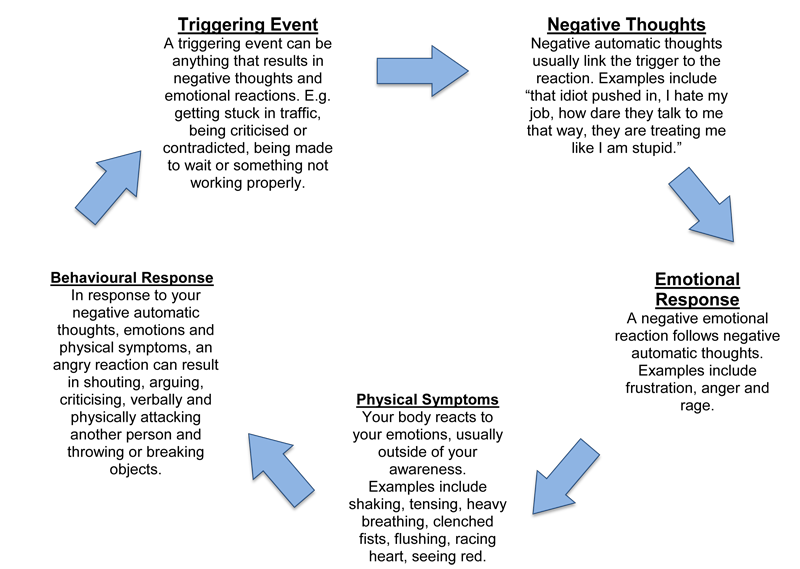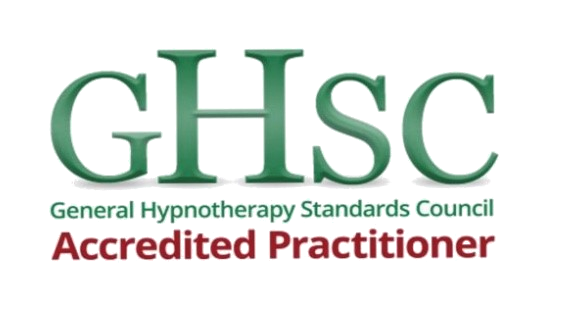CBT Treatment for Anger Problems - London, UK-wide and Online via Video-link
Whilst everybody occasionally experiences anger provoking situations, if you struggle to maintain your temper or overreact to situations at home and at work, you may benefit from Cognitive Behavioural Therapy (CBT) to learn how to improve emotional resilience and regulate your mood shifts.
We provide fast and effective CBT treatment for anger problems from our centres in London and from over 100 locations across the UK. Cognitive Behavioural Therapy is the recommended treatment of choice for anger management problems and the published research evidence shows that it works. To talk to one of our CBT experts about treatment for anger or problems regulating your mood, call 01732 808626 or email info@thinkcbt.com
Normal Feelings of Anger Versus Anger Problems
Most people experience occasional feelings of anger, when personal expectations, values, rules or standards are threatened, compromised or violated. Anger can be viewed as an emotional reaction to perceived threat or danger and in this context, transient anger is part of the normal emotional range. Feelings of anger can be an appropriate emotional reaction to frustration, injury, insult or threat to survival or psychological integrity.
Angry feelings are, however, different to anger problems. When anger becomes automatic, difficult to control, prolonged, disproportionate and destructive, this can indicate an underlying anger problem or an anger disorder. Anger problems can develop when transient feelings of anger are sustained and change to feelings of resentment, bitterness, hatred and destructive rage.
Anger problems can be psychologically, socially and physiologically damaging. Anger can increase the direct risk of physical aggression and can have a detrimental effect on our physical health, relationships and working lives.
Anger disorders involve:
- Frequent, intense or enduring anger episodes that have persisted for at least six months.
- Physical activation involving increased heart rate, rapid breathing, muscle tension, stomach related symptoms or headaches.
- Cognitive rumination that interferes with concentration, task performance, problem-solving or decision-making.
- Biased thinking regarding the negative intentions of others.
- Ineffective communication.
- Brooding or withdrawal.
- Overwhelming feelings of distress, guilt, and shame following anger episodes.
- Aversive verbal, expressive and physical aggression.
- Intentionally failing to meet obligations or expectations.
- Covertly sabotaging, interfering with task completion and creating problems for others.
It is often assumed that anger is the primary reaction to a perceived threat or offence. Psychological research has revealed, however, that our initial response is emotional distress. Anger and rage spikes are therefore not necessarily caused by aggression. They can be viewed as a secondary reaction to a sense of personal distress at having been "wronged" in some way. In CBT, this is sometimes referred to as the hostility sequence. The stages in the hostility sequence usually include:
Perceived threat >> Distressed Feeling >> Sense of being Wronged >> Anger >> Counter-attack >>
This automatic sequence of thoughts and emotions can create a self-perpetuating and engrained anger cycle as illustrated below:

Understanding how the anger cycle is triggered and maintained, as well as learning how to regulate emotional reactions and behaviours, is key in the treatment of anger problems using CBT.
How CBT is Used to Treat Anger Problems
Research has demonstrated that cognitive and behavioural techniques are highly effective in the treatment of anger problems. Key CBT approaches include:
- Identifying the triggers and situations that activate anger reactions.
- Mapping the hostility sequence to understand how anger is maintained.
- Altering the automatic thinking patterns that keep anger or rage going.
- Learning new behavioural strategies to defuse anger reactions.
- Learning new emotional regulation techniques to manage angry feelings.
- Working on the underlying rules and beliefs that predispose clients to anger problems in the first instance.
We have developed a simple CBT model to identify the triggers and cooling down factors in anger management. This can be used by therapists and clients to plan and work through the CBT process. This model provides more detail on how CBT is used to support effective anger management and underlying change. You can download the Anger Management Model here.
If you want to talk to an expert about anger management, you can complete the short contact form on this page and we will call or email to organise a free initial telephone consultation. You can also take the free anger assessment by clicking on the following link:









































































































































